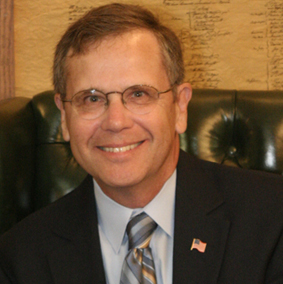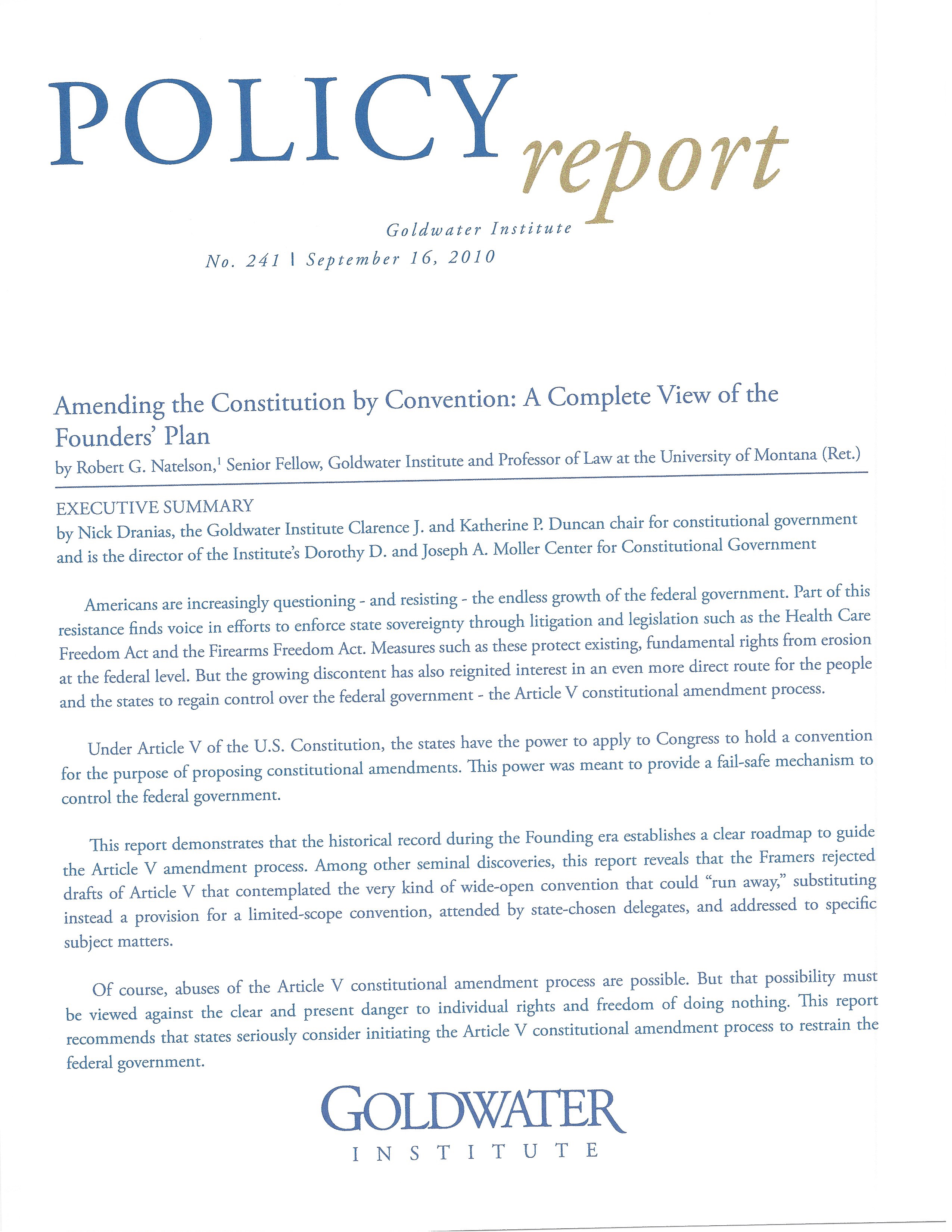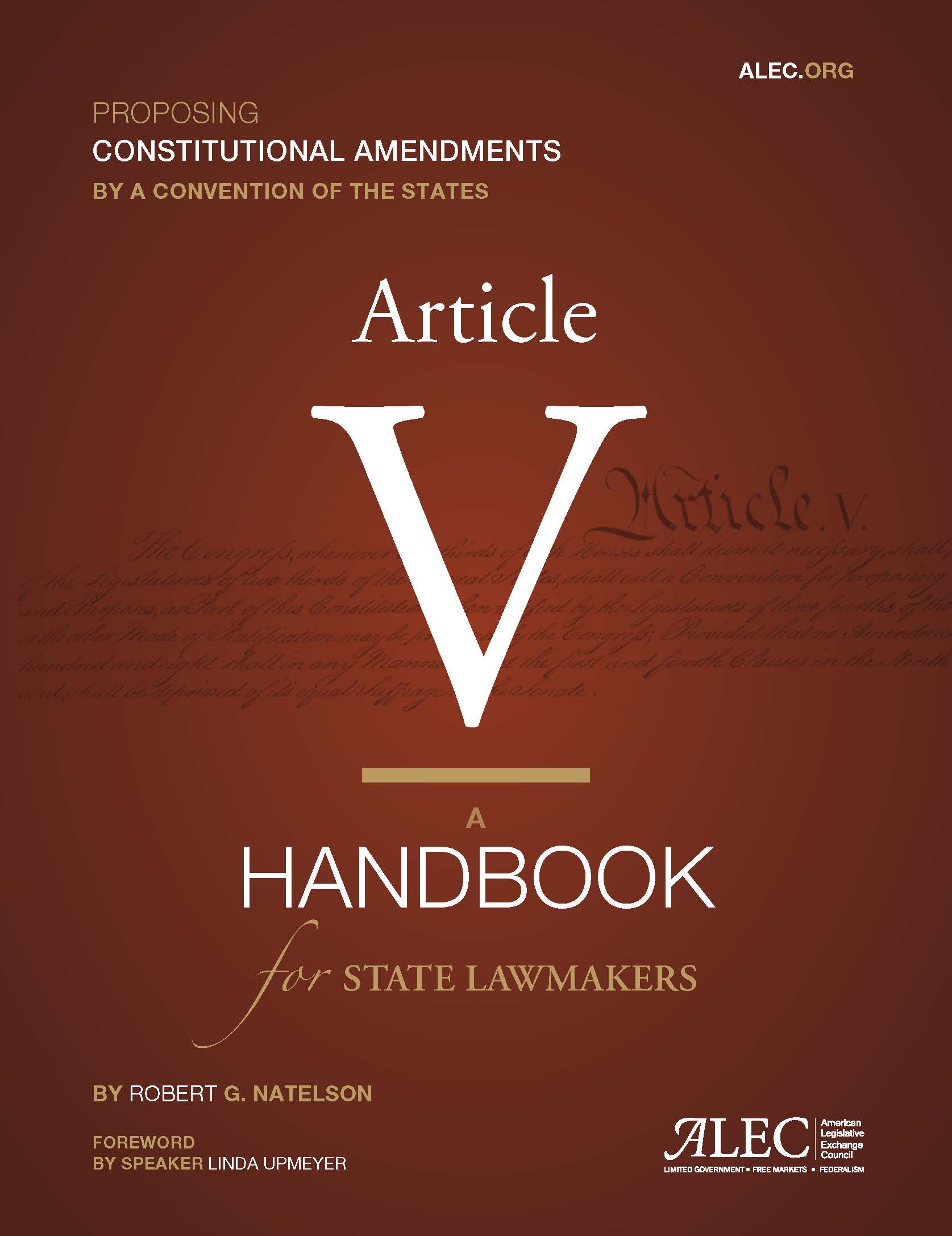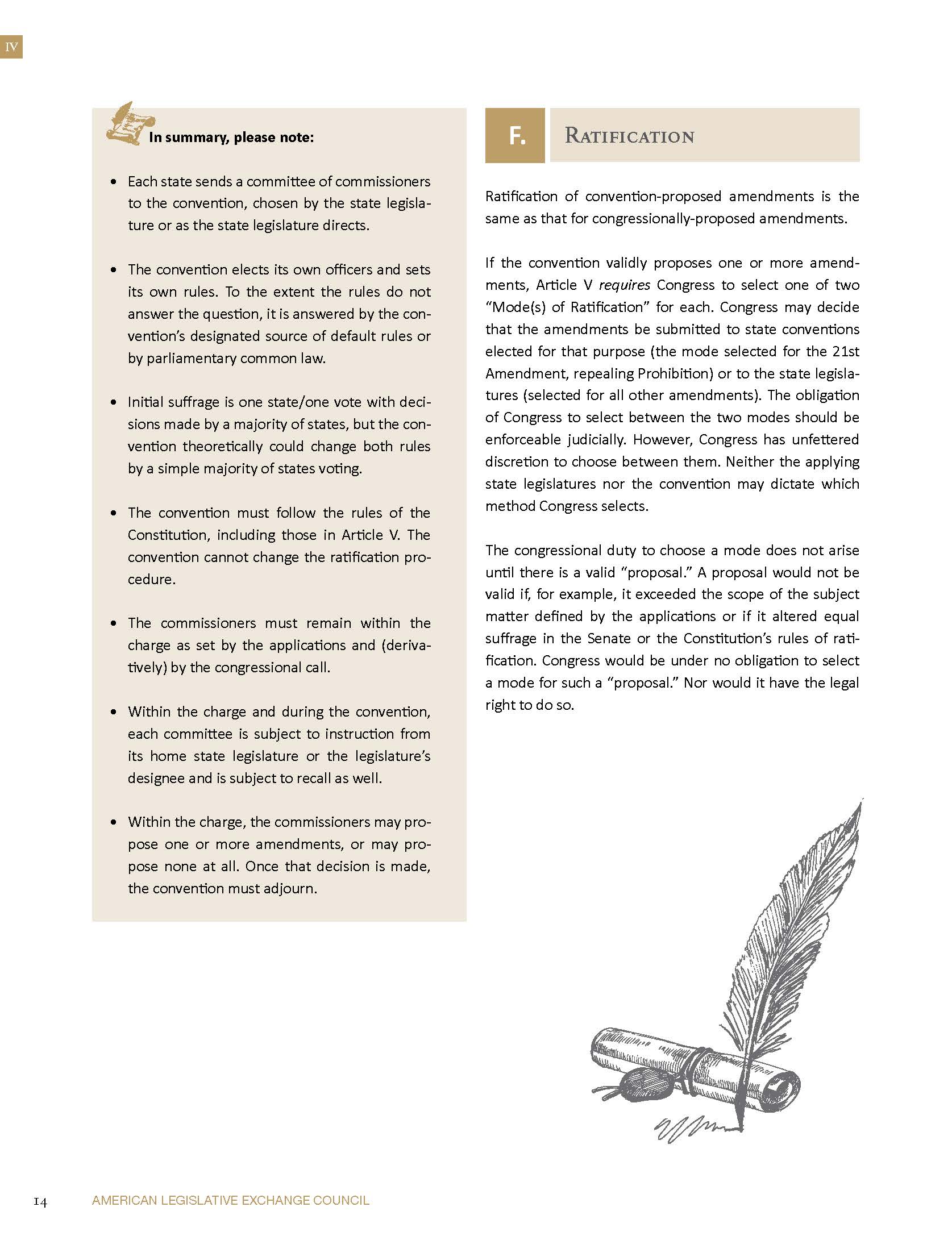Subjects Inside: Article
V Applications
FAQ,
Application Counts By
Congress, Articles,
AVC Legislative Report, CRS Reports,
Convention of State, Compact for America, COS, CFA--Which States are Which?, The Historic Record of COS, COS, CFA Laws, COS Articles, CRS Reports on COS/CFA, COS, CFA Financial Records, CFA Financials, COS Financials, COS/CFA Financial Conclusions, John
Birch Society, Con-Con, Runaway
Convention, Who Called the Convention, Congressional
Vote on a "Runaway" Convention, "Obey
the Constitution, Only Two More States", Illegal Rescissions, The Phony Burger Letter, The
Madison Letter, Fotheringham Exchange, JBS Articles, Sibley
Lawsuit, General Interest, Article V.org,
Robert Natelson, History
of Article V, Counting the Applications, The Numeric Count History, Congressional Decision of May 5, 1789,
Development of Article V, The Committee of the Whole, The Committee of Detail, August 30, September 10, Committee of Style, September 15, Official Government Documents,
History of FOAVC, Founders,
Audio/Visual,
Links,
Contact
Us, Legal
Page, 14th Amendment, The Electoral Process, Packets,
Definitions, Numeric, (Applications grouped by numeric count as required by the Constitution),
Same Subject (Applications grouped by amendment subject, not required by the Constitution for a convention call).
Page 10--Robert G. Natelson A major figure today in
the Article V Convention movement, Professor Robert G. Natelson first
entered the AVC scene in 2010 with the publication of a policy report (shown below) at
the Goldwater Institute located in Phoenix, Arizona. In that report
he advocated the legal theory that the principles of fiduciary law
(sometimes referred to as master/slave or employer/employee law) rather
than constitutional law be applied to an Article V Convention. This
theory of law has served as the basis for the creation of the political
groups Convention of States and Compact for America. As of January, 2017 Professor
Natelson, who retired from the University of Montana, is currently a
Senior Fellow in Constitutional Jurisprudence for the Independence
Institute based in Denver, Colorado.
A major figure today in
the Article V Convention movement, Professor Robert G. Natelson first
entered the AVC scene in 2010 with the publication of a policy report (shown below) at
the Goldwater Institute located in Phoenix, Arizona. In that report
he advocated the legal theory that the principles of fiduciary law
(sometimes referred to as master/slave or employer/employee law) rather
than constitutional law be applied to an Article V Convention. This
theory of law has served as the basis for the creation of the political
groups Convention of States and Compact for America. As of January, 2017 Professor
Natelson, who retired from the University of Montana, is currently a
Senior Fellow in Constitutional Jurisprudence for the Independence
Institute based in Denver, Colorado.The main theme of
Natelson's fiduciary
theory is the American people have no place in an Article V Convention.
Thus the
people are not allowed to vote for the delegates who attend the
convention nor are they allowed any public debate regarding the
convention agenda. Rather, Natelson advocates total control of the
convention process by a few select members of the various state
legislatures. Natelson also believes the agenda of a convention should
be pre-determined by the legislatures. He believes the legislatures
should be free to "instruct" the delegates to a convention on all
aspects of the convention from debate and ultimately to vote. Natelson
refers to these unelected delegates as "commissioners" and
believes they totally are controlled by the state legislatures with no
input from the people whatsoever. This theory of convention is known as
a "closed" convention (See: Page 11 A, Page 11 D).
Natelson bases his theory on the practices of conventions that were held in America prior
to the colonies declaring their independence when the colonies were
still under British rule and law. Under that law the King established
convention agenda. The King had the power to arrest anyone who failed
to follow any "instructions" he made in regards to the convention. In
the present time several states have passed laws calling for felony
arrest of delegates should they fail to follow "instructions" from a
few select members of the state legislatures. Natelson has never publicly repudiated these state laws.
While Natelson denies he ever advocated such policy, nevertheless the fact remains that felony arrest of delegates who refuse to obey the "instructions" of state legislators stems from the fact that during the time period Natelson bases his theory, colonial America, it was the practice of the British government to arrest anyone who disobeyed the King's orders including those regarding a convention. All conventions Natelson uses as the basis of his legal theory were held under these terms: strict control of convention agenda by order of the King; threat of arrest for failure to obey the "instructions" of the King. American independence in 1783 replaced the sovereign tyranny of the King with the popular sovereignty of the people meaning no act of government could occur with consent of the governed. Thus the law Mr. Natelson bases his theory on law that no longer exists in America but which Mr. Natelson asserts still has legal affect.
While Natelson denies he ever advocated such policy, nevertheless the fact remains that felony arrest of delegates who refuse to obey the "instructions" of state legislators stems from the fact that during the time period Natelson bases his theory, colonial America, it was the practice of the British government to arrest anyone who disobeyed the King's orders including those regarding a convention. All conventions Natelson uses as the basis of his legal theory were held under these terms: strict control of convention agenda by order of the King; threat of arrest for failure to obey the "instructions" of the King. American independence in 1783 replaced the sovereign tyranny of the King with the popular sovereignty of the people meaning no act of government could occur with consent of the governed. Thus the law Mr. Natelson bases his theory on law that no longer exists in America but which Mr. Natelson asserts still has legal affect.
FOAVC believes the question of whether the people or the state
legislatures should control of the convention is vital. In short,
the question is shall we operate under the law of the Constitution, or
return to the law of the King which the American people replaced in 1783?
Ironically, it is the American people who will decide whether or not changes to their
Constitution will be decided by themselves acting in their
traditional roles of election and participation or by a select few legislators who will
decide all matters without input from the people. It
boils down to a choice between a democratic and autocratic form of government.




